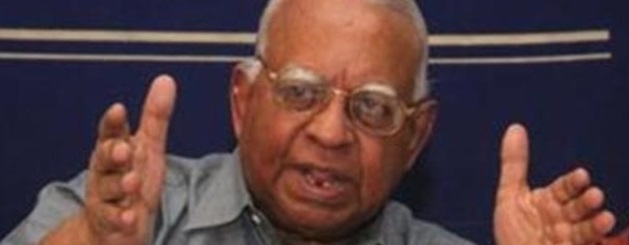Negotiations towards a Political Solution: Sampanthan Sets the Record Straight
During his speech, Sir, His Excellency the President has also referred to political issues. I refer to points 2.6 and 2.7 in his speech. He has talked about the need for a political solution. He has insinuated that the Tamil National Alliance is not cooperating with the Government in regard to a political solution. He has also alleged that the Tamil National Alliance is responsible for the present stalemate regarding a suitable political solution. I do not think, Sir, that these statements of the President are in accordance with the true position. I do not intend to engage in a confrontation, but I do think when the President has made a statement of this nature, the truth needs to be put on record, and that, we need to respond. We are committed to the evolution of a political solution within the framework of a united and undivided Sri Lanka. It is true that there was a demand for the restoration of sovereignty of the Tamil people consequent to the enactment of the 1972 Constitution, which denied them everything and made them second class citizens. The Indo-Sri Lanka Agreement, ever since its inception, the date of Agreement is 29th July 1987 – the first commitment in the agreement is that the unity, sovereignty and territorial integrity of Sri Lanka must be preserved. Ever since then, Sir, the demand for separation has not been pursued. It is the expectation of the vast majority of Tamil people that there will be a political solution that would enable them to live as equal citizens within a united and undivided Sri Lanka. They would much prefer and indeed want to be equal Sri Lankans rather than pursue a separatist goal. It is in this background, Sir, that I propose to analyze what the President has said in the course of his Budget Speech and all that has happened, particularly, after President Rajapaksa’s assumption of office for the first time in 2005.

